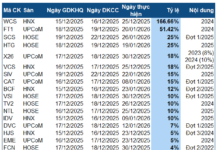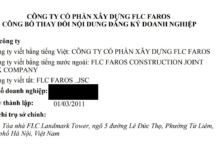In a survey by industry giant Cisco, respondents largely agreed that hybridity leads to benefits, such as enhancing security (45% of respondents), which is often a top concern for IT managers, and improving operational efficiency (41%). Additionally, 39% believed that hybridity would increase application stability and availability.
Furthermore, a hybrid model can optimize investment costs by striking a balance between on-premises and cloud resources. This allows organizations to leverage the scalability and flexibility of the public cloud while maintaining control over sensitive data and mission-critical applications in their private infrastructure. It caters to specific business requirements while giving access to the latest cloud technologies and services, such as Kubernetes (K8s).
“Enterprises should decide which workloads to run on the cloud and which to keep on-premises. Workloads suitable for the cloud should be migrated to fully utilize its advantages,” said a representative of Bizfly Cloud, a leading self-developed cloud services provider in Vietnam.
However, are there any challenges in implementing a hybrid model?
Mr. Son – CEO of a passenger transport company – said that adopting a hybrid model has helped the company achieve several goals, including increasing the availability of its growing application and optimizing resource utilization costs. For over a year, his company has deployed a K8s system on-premises to develop applications for projects such as parking lots and booking services at bus stations and garages. However, during implementation, they encountered an issue with suboptimal load balancing.
After testing solutions from multiple providers, the load balancer could not self-balance despite manual configuration. When the company tried deploying K8s on the cloud with an international provider, they faced a lack of integration with their on-premises infrastructure, resulting in underutilized on-premises server resources. Moreover, the utilization rate was only around 75%, while the cost of using the international service remained high (an estimated 150 million VND per month). This was due to the high cost of bandwidth from international locations to Vietnam, resulting from the long data transmission distance and increasing costs with increased data transfer.

Mr. Son added that his company’s services require high stability, but frequent fiber optic cable failures can affect driver response times, customer experience, and revenue.
Hybrid Cloud Deployment with Bizfly Cloud Solves the Challenge of Optimizing Physical Server Resources and Improving Application Performance
After further testing the deployment on Bizfly Cloud’s K8s, the solution provided automatic load balancing because Bizfly Kubernetes Engine (BKE) directly integrates with Bizfly Load Balancer and operates on the same dashboard as BKE. Bizfly Load Balancer is a fully developed solution by Bizfly Cloud that automatically load balances Kubernetes clusters in the system.
Bizfly Cloud assisted the company in implementing a hybrid cloud model on BFC infrastructure, leveraging physical server resources to save costs while maintaining optimal performance. The model utilized K8s services, Cloud Database, and Simple Storage (S3), all managed on the same interface for convenient access and easy operation by the company’s personnel.
As part of the hybrid deployment, Bizfly Cloud also managed the physical infrastructure for Mr. Son’s company, designing a private network to physically isolate the infrastructure. Application connectivity and data synchronization were established over a secure VPN Site-to-Site connection using the IPSec protocol, ensuring security and confidentiality.
Deploying on the domestic cloud environment reduced bandwidth and transmission costs while eliminating service disruptions caused by international connectivity issues.

In addition to offering a stable domestic network, Bizfly Cloud provides flexible bandwidth pricing options, including free network access or free bandwidth, allowing businesses to choose the one that best suits their specific needs.
Combining these factors, the company saved approximately 50% on costs compared to using an international provider and eliminated international network connectivity issues.
This led to three achievements: ensuring high application availability, reducing bandwidth costs, and leveraging existing resources on physical machines, which optimized technology costs.
To experience Bizfly Cloud Kubernetes Engine and other infrastructure products for FREE for three months, and receive detailed advice on deployment models, visit here.
Hotline: (024) 7302 8888 – (028) 7302 8888





































